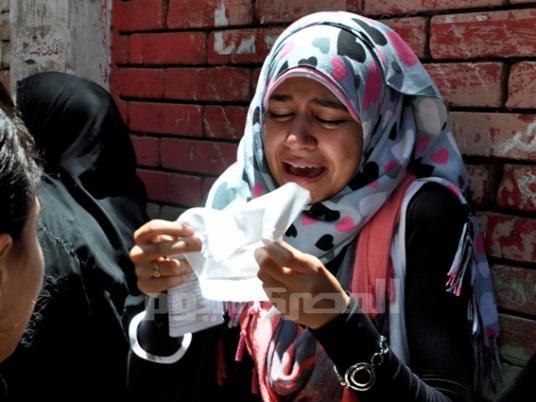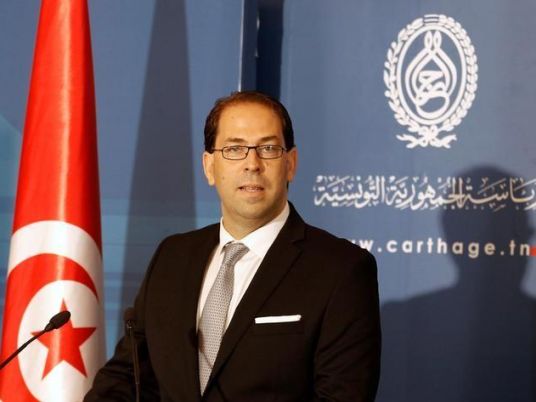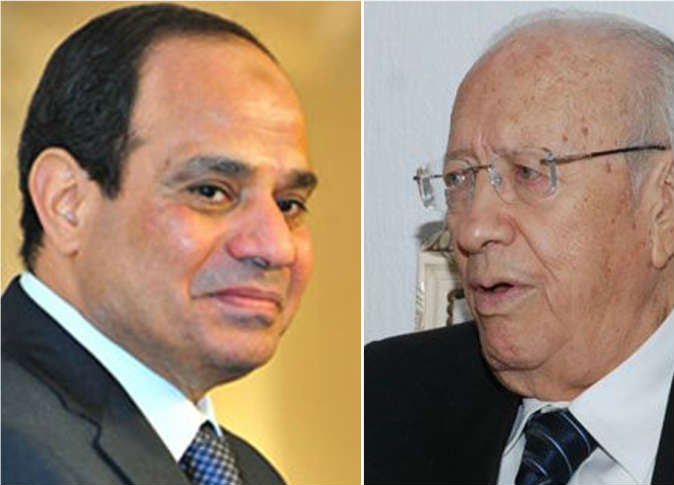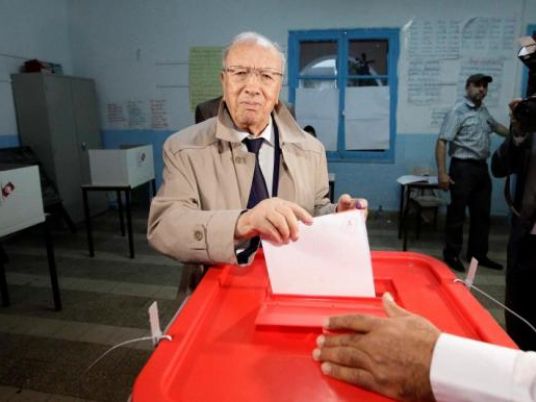
Tunisian presidential candidate Beji Caid Essebsi is competing in a runoff with Interim President Moncef Marzouki, to take place on 21 December.
The second round follows November's elections where Essebsi lead by a small margin and neither candidate secured enough votes to win the presidency.
Q: How do you see the result of the first round of elections?
A: The people honored me and gave me the lead, while the interim president has exceeded his term.
Many officials believe they have power because they were elected. This is wrong because power is with the people, while the power the officials have is delegated to them by the people.
Of course, we will respect the ballots regardless of the results.
Q: How do you evaluate the interim president who exceeded his one-year term?
A: We had elected a national council for a year to draft a constitution, but the council did not respect the one-year period. The council that was supposed to draft a constitution was turned into a legislative authority. The members of the council gave themselves this power, which was a deviation from the original course.
But nothing lasts forever. We had decided to hold legislative and presidential elections, but they imposed on us the legislative elections first. This was inappropriate and created a small problem. For who will approve the next prime minister? Is the president-elect according to the constitution or the interim president whose term has finished?
The interim president asked me to choose the prime minister because I am the leader of the party that won the majority seats in the legislative elections. As a man of law, I wonder if I have the right to do this.
Q: Did the 30 June revolution influence Tunisia?
A: Not much because we were negotiating for the Ennahda government to be replaced by a temporary government of technocrats. Meanwhile, the Egyptians had problems with the Muslim Brotherhood, which they solved in a bloody way. But we do not interfere in the internal affairs of other countries.
At any rate, a solution was found for the problem between the Egyptian people and the Muslim Brotherhood, who were elected but deviated from the path. The president at the time was not acting as president of all Egyptians, but rather of a certain group.
Q: What would your relationship with Egypt look like?
A: Egypt has always been a sister country to us, and the Egyptian people have weight in the region. We respect what happened in Egypt and we respect the Egyptian leadership.
Q: What are the main issues that you would address on the diplomatic level?
A: We will return to our foreign policy that had prevailed since independence, defined by moderate attitudes and conformity to international conventions, support of freedom issues — especially the Palestinian cause — and restoration of peace and security in our region and the world.
We will also collaborate with regional and international parties to combat terrorism and organized crime, and enhance our relations with Africa and with economic partners who supported the Arab Spring and promised to help our democratic transition.
We will call for an international economic conference in Carthage in 2015 to promote investment with our most important partners, such as France, Italy, Germany, Switzerland and the United States in order to turn our debts into development projects and achieve economic balance.
Q: As president, what would you offer to the young generation?
A: I will help them take responsibility for Tunisia to go on as a modern state in the twenty-first century. This will only happen at the hands of the new generation.
Q: Some call for voting against you because your party already has the majority in parliament and will form the government, which means you would have all power in your hands. What do you say to this?
A: The constitution does not forbid this.
Q: What is your position regarding Libya?
A: Unfortunately, there is no Libyan state now. There are only fights between various militias. All what Gaddafi left behind is a large number of weapons.
Q: What did you pledge yourself to do in order to win the trust of the people?
A: I pledged to maintain the prestige and sovereignty of the Tunisian state internally, achieve security for citizens, accelerate the investment growth to create job opportunities, strengthen national unity, improve education, health services and transportation, provide the right climate for creativity and culture, achieve social equality for people with special needs, defend the youth, women's rights and values of public morality, and consolidate the democratic process in accordance with the constitution.
Q: Marzouki called for a debate. Would you have one?
A: I am too old for debates.
Q: What would you ask of the Tunisian people if you win?
A: I will ask them to be up to the responsibility and hold whoever they elect accountable at all times.
Q: What would you do about the mistakes of the Ennahda government? Would there be punishment?
A: I look forward to the future. To get there, I do not think we should exclude anyone. But of course, those who made mistakes must be held accountable. This does not mean I would be settling old accounts as such. I am not like that. I am against persecution. This creates a negative atmosphere. I will do what is good for Tunisia.




